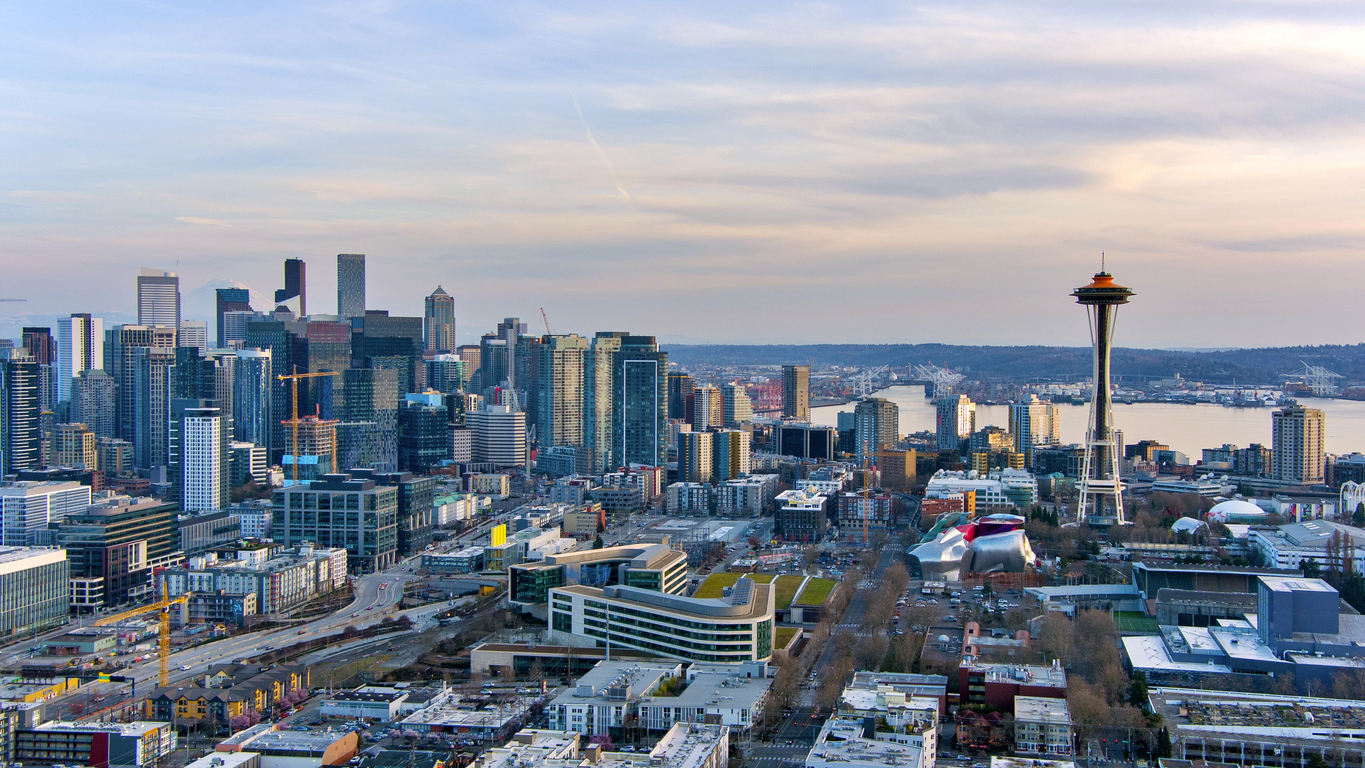Seattle’s economy, long a powerhouse of innovation and growth, is facing a stark reality in 2025, a declining job market that threatens the city’s prosperity.
According to the Washington State Employment Security Department’s April 2025 Monthly Employment Report, the Seattle Metropolitan Division lost approximately 4,200 jobs between January and April 2025, with the unemployment rate in King County rising to 5.1%, compared to the state average of 4.6%. This marks a significant departure from the robust job growth of the 2010s, when Seattle added tens of thousands of jobs annually. The tech sector, a cornerstone of Seattle’s economy, saw a 2.3% decline in employment from Q1 2024 to Q1 2025, while retail and hospitality sectors reported job growth of just 0.8% and 1.2%, respectively, far below pre-pandemic levels. The state’s Economic and Revenue Forecast Council projects Washington’s overall job growth at a mere 0.6% for 2025, with Seattle lagging behind even this modest figure.
The US Bureau of Labor Statistics shows Washington, driven by Seattle’s job losses, is currently 2nd worst in the nation for unemployment per actual job openings. Only California is ranked lower.

These numbers reflect a broader trend: Seattle’s economic engine is stalling. The tech industry, led by giants like Amazon and Microsoft, has seen significant layoffs, with thousands of job loses impacting Seattle. Small businesses, which employ nearly half of Washington’s workforce, are also struggling.
This is despite the foot traffic, number of visitors and office workers returning to the Seattle downtown area improving slightly since the pandemic. This is a good sign, but indicates a shift in the type of visitors to the city.
Several factors are driving Seattle’s job market decline. First, local policies have created a challenging environment for businesses. Seattle’s minimum wage, now at $20.76 per hour in 2025, is among the highest in the nation. While intended to support workers, it has strained small businesses, particularly in hospitality and retail, where margins are thin. The JumpStart payroll tax, implemented in 2021, targets companies with payrolls over $8 million, discouraging large employers from expanding in Seattle. Businesses surveyed cited this tax as a reason for relocating jobs to suburbs like Bellevue or out of state. Amazon has revealed plans to have up to 25,000 employees relocate to Bellevue.
Second, regulatory burdens are stifling growth. Seattle’s permitting process and state building regulations are incredibly complex and can add months to a permit approval. The city’s zoning laws, which restrict mixed-use development, further limit opportunities for small businesses to establish affordable locations.
Third, the shift to remote work has reshaped Seattle’s economy. A 2024 Downtown Seattle Association study cited in the Seattle Times reported a 56% occupancy compared to 2019, reducing demand for downtown jobs in food service, retail, and transportation. This trend has led to a 25% decline in commercial real estate demand in Seattle since 2022, further depressing local economic activity.
Fourth, broader economic factors, including inflation and a cooling national job market, are impacting Seattle. The U.S. added only 151,000 jobs in February 2025, below expectations, signaling a cautious approach to hiring. Seattle’s heavy reliance on tech and retail makes it vulnerable to these national trends.
Finally, crime is still a blight on the city. While overall-crime has decrease in the last 24 months, 2025 serious crime incidents are up and have cast a shadow on Mayor Harrell’s efforts to clean up the streets. Recent protests are not helping with the image of the city or city leaders. This has a direct impact on small businesses and visitors to the city.
Seattle can reclaim its economic momentum with pragmatic, market-oriented reforms. First, policymakers must reduce the cost of doing business. Repealing or reforming the JumpStart tax would incentivize large employers to maintain or expand their Seattle operations. Similarly, lowering the minimum wage for small businesses or offering temporary tax credits could ease financial pressures and encourage hiring.
Second, streamlining regulations is critical. Cutting permitting times and simplifying zoning laws would attract new businesses and foster job creation. Bellevue’s success in attracting tech firms with faster permitting processes offers a model for Seattle to follow.
Third, Seattle must adapt to the remote work era. Investing in infrastructure, such as high-speed internet and coworking spaces, could make the city more attractive to hybrid workers. Tax incentives for businesses that maintain physical offices in Seattle could also preserve downtown jobs.
Seattle’s job market decline is a wake-up call. The city’s leaders must prioritize policies that foster economic growth over ideological agendas. By reducing taxes, streamlining regulations, adapting to remote work, and diversifying the economy, Seattle can restore its reputation as a hub of opportunity. The time to act is now, before more jobs and talent leave the city for good.






